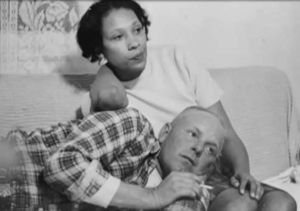During the seventeenth and early eighteenth century, the growing number of interracial marriages between Blacks and Whites led to the passage of this new law. The first anti-miscegenation law enacted was in the colony of Maryland in 1664 and additional colonies quickly followed. These marriages were prohibited and penalties included the enslavement, exile or imprisonment of the white perpetrators. These laws grew and evolved over the years and attempts were even made to modify the Constitution to ban interracial marriage in all states.
Pennsylvania, which had passed a law banning interracial marriage in 1725, repealed it as part of a series of reforms intended to gradually abolish slavery within the state, and granted free Blacks equal legal status in 1780.
In 1883, in the Pace v. Alabama case, the U.S. Supreme Court unanimously ruled that state-level bans on interracial marriage do not violate the Fourteenth Amendment of the U.S. Constitution. The ruling held for more than 80 years.

In 1967, Richard Loving, a white man, and Mildred Jeter, a black woman, were married in the District of Columbia. When they returned home to Virginia, they were arrested and convicted of violating the state’s anti-miscegenation law. They each faced a year in jail and their case went to the Supreme Court. The Supreme Court found in favor of the Lovings in the famous trial Loving v. Virginia and overturned Pace v. Alabama. They ruled that prohibiting interracial marriage on state and local levels was unconstitutional; this meant that marriages between the races were legal in the country for the first time since 1664.
In 2000, Alabama became the last state to officially legalize interracial marriage by removing the unenforceable ban that was still contained in their state constitution. The Alabama State Legislature wanted to keep the old language as a symbolic statement of the state’s views on interracial marriage. As recently as 1998, House leaders successfully blocked attempts to remove Section 102.
When voters finally had the opportunity to remove the language, the outcome was surprisingly close: although 59 percent of voters supported removing the language, 41 percent favored keeping it. Interracial marriage remains controversial in the Deep South, where a 2011 poll found that a large amount of Mississippi residents still supports anti-miscegenation laws. Even though we’ve come so far, this serves as a reminder that we’re not finished yet!
